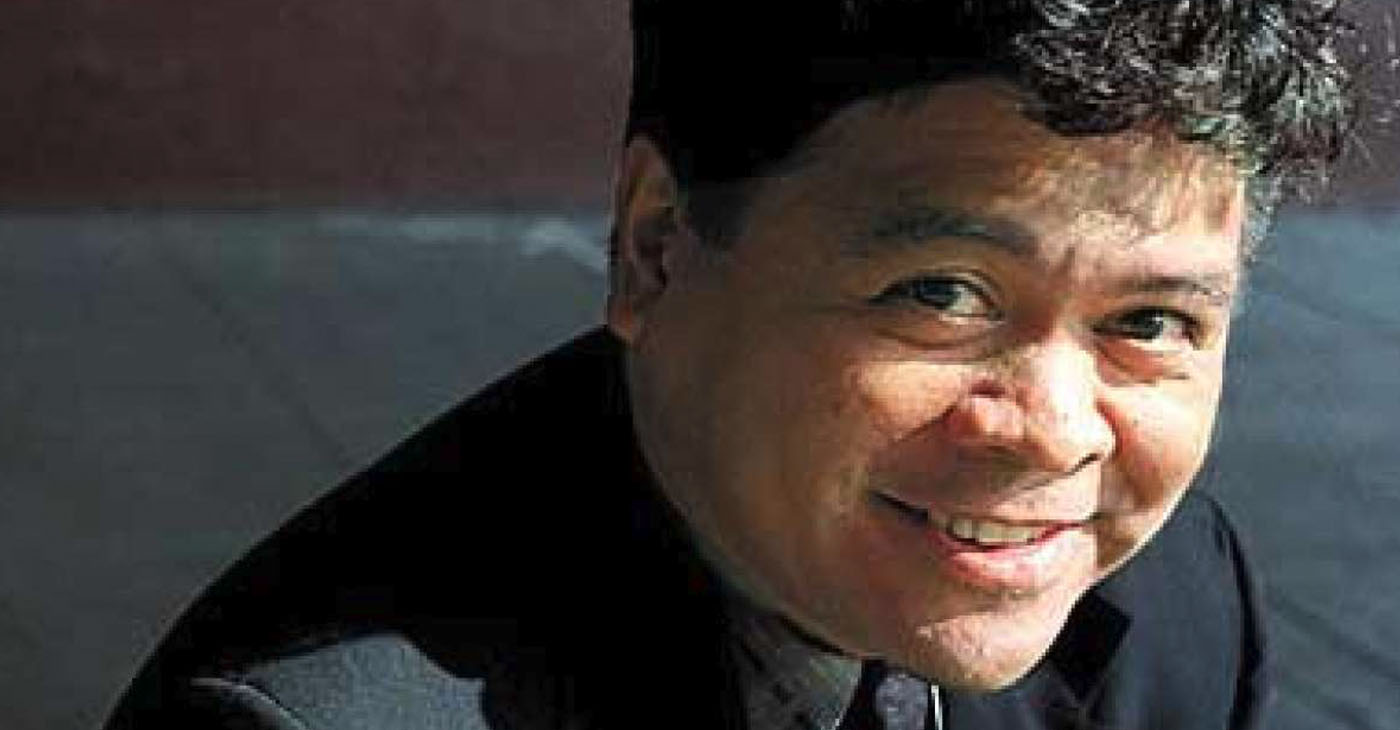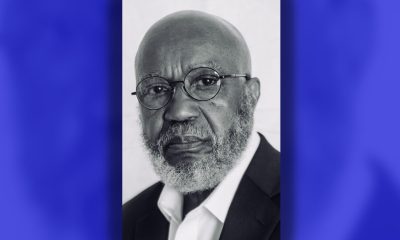Commentary
COMMENTARY: Jan. 6 Select Committee Hearings? Watch It Like You’d Watch a Warriors Game
And if you still don’t think it matters, just think on Jan. 6 Committee Chair Bennie Thompson’s opening statement last Thursday. A respected representative from Mississippi, Thompson put it on the line at the start: “I am from a part of the country where people justified the actions of slavery, the Ku Klux Klan and lynching. I’m reminded of that dark history as I hear voices today try and justify the actions of the insurrectionists on January 6, 2021.”

By Emil Guillermo
The NBA Finals/Game 5 was on primetime TV on Monday, and I have to confess, I was relieved it didn’t conflict with the Jan. 6 hearings on the “Big Lie.”
Because I would have had to make a choice. Democracy or basketball.
But the gods arranged for the story of our imperiled democracy to be on in the morning. And that gave primetime to the Dubs, who dutifully put the Celtics away. Can they win Game 6 in Boston on Thursday, or will a Game 7 be forced on Sunday?
I think they can.
Now what about our democracy? Why don’t we care about the Jan. 6 hearings enough to make it must-see TV?
The hearings require your absolute attention, as they lay out how the twice-impeached former president, No. 45, created the “Big Lie” about the 2020 election being rigged or stolen.
That would be quite enough, but small lies snowball into mega-lies and create the frenzy that led to the insurrection by MAGA followers to riot on the Capitol on Jan. 6. 2021.
This is nothing less than hearings on the future of our democracy. Everyone should be watching.
Twenty million people tuned in to the Thursday prime-time preview last week, which is about five times the number that tuned into Trump’s “Apprentice” in prime time.
But there are 300 million in this country impacted by the “Big Lie.”
Everyone needs to see the former attorney general Bill Barr call Trump’s false claim that the election was stolen, “Bull—-.”
Let that be emblazoned in our collective heads.
Here’s the man who was Trump’s chief enabler during his administration. And he is saying in no uncertain terms there was no election fraud.
And then there’s Trump’s own daughter, Ivanka, who said she believes in Barr.
This is Trump’s inner circle telling the truth under oath. They know how the rule of law works. But Trump still held on to the idea that the election was rigged and stolen. From day one, Trump continued to push the lie and even fund-raise a quarter of a billion dollars from the public.
And as Barr’s testimony continues to remind us, it was all based on Trump’s embrace of “bull—-.”
If you don’t care because the system is rigged against people of color, I have news for you. You not caring assures that the system will be as indifferent to us as it ever has been.
I urge you to watch in real time if you can. Or to watch on C-SPAN later.
And if you still don’t think it matters, just think on Jan. 6 Committee Chair Bennie Thompson’s opening statement last Thursday. A respected representative from Mississippi, Thompson put it on the line at the start:
“I am from a part of the country where people justified the actions of slavery, the Ku Klux Klan and lynching. I’m reminded of that dark history as I hear voices today try and justify the actions of the insurrectionists on January 6, 2021.”
Thompson and his colleagues are under oath to defend the Constitution against all enemies, foreign and domestic.
The sad thing the hearings reveal is that sometimes the enemy may include an outgoing president and his cronies (Rudy Giuliani, the former NYC mayor chief among them), hellbent on ignoring the will of the people.
If you still are lukewarm, maybe you’re one of those rare birds, a BIPOC diehard Republican. Clarence Thomas is one. Michelle Steel, an Asian American member of Congress representing Orange County is another. Many continue to run for office and somehow are fine with the “Big Lie.” They must be rooted out.
Just remember how Thompson hears anyone who defends Trump. They have the same tone as those who would defend and justify racism, slavery, and the Klan.
I tell my Asian American readers to think of our mothers and fathers and their early experiences when they arrived in America. They didn’t come from China, the Philippines, Korea, Vietnam, India, etc., because of the Big Lie.
They came to escape the lies in their ancestral homes and came to America because the truth and the rule of law means something.
The hearings show us how low a president was willing to go to diminish that something into nothing in our democracy.
And the real fear is that without a savvy, informed electorate, it could all easily happen again.
That’s why we must pay attention.
Emil Guillermo is a journalist and commentator. See him on www.amok.com
Activism
Oakland Post: Week of April 17 – 23, 2024
The printed Weekly Edition of the Oakland Post: Week of April 17 – 23, 2024

To enlarge your view of this issue, use the slider, magnifying glass icon or full page icon in the lower right corner of the browser window. ![]()
Commentary
Opinion: Surviving the Earthquake, an Eclipse and “Emil Amok.”
Last Friday, a 4.8 magnitude earthquake shook New York City, reported as the “biggest earthquake with an epicenter in the NYC area since 1884” when a 5.2 quake hit. A bit bigger. The last quake similar to Friday’s was a 4.9 in 1783.Alexander Hamilton felt it — 241 years ago. That’s why New Yorkers were freaking out on Friday. They were in the room where it happens.

By Emil Guillermo
I’m a Northern Californian in New York City for the next few weeks, doing my one-man show, “Emil Amok, Lost NPR Host, Wiley Filipino, Vegan Transdad.”
I must like performing in the wake of Mother Nature.
Last Friday, a 4.8 magnitude earthquake shook New York City, reported as the “biggest earthquake with an epicenter in the NYC area since 1884” when a 5.2 quake hit. A bit bigger. The last quake similar to Friday’s was a 4.9 in 1783.
Alexander Hamilton felt it — 241 years ago.
That’s why New Yorkers were freaking out on Friday. They were in the room where it happens.
And it just doesn’t happen that often.
Beyonce singing country music happens more frequently.
When I felt New York shake last week, it reminded me of a time in a San Francisco TV newsroom when editors fretted about a lack of news an hour before showtime.
Then the office carpeting moved for a good ten seconds, and the news gods gave us our lead story.
On Friday when it happened in NYC, I noticed the lines in the carpeting in my room wiggling. But I thought it was from a raucous hotel worker vacuuming nearby.
I didn’t even think earthquake. In New York?
I just went about my business as if nothing had happened. After living near fault lines all my life, I was taking things for granted.
Considering the age of structures in New York, I should have been even more concerned about falling objects inside (shelves, stuff on walls) and outside buildings (signs, scaffolding), fire hazards from possible gas leaks, and then I should have looked for others on my floor and in the hotel lobby to confirm or aid or tell stories.
Of course, as a Californian who has lived through and covered quakes in the 4 to 6 magnitude range, I tried to calm down any traumatized New Yorker I encountered by taking full responsibility for bringing in the quake from the Bay Area.
I reassured them things would be all right, and then let them know that 4.8s are nothing.
And then I invited them to my consoling post-Earthquake performance of “Emil Amok, Lost NPR Host…”
It was the night of the eclipse.
ECLIPSING THE ECLIPSE
In New York City, the eclipse was about 90 percent visible. Good enough for me. Though a full solar eclipse is a celestial rarity, blockages of any sort aren’t generally celebrated. My one-man play is about growing up with the eclipsed history of American Filipinos and how I struggle to unblock all that.
For example, did you know the first Filipinos actually arrived to what is now California in 1587? That’s 33 years before the Pilgrims arrived in America on the other coast, but few know the Filipino history which has been totally eclipsed.
I was in Battery Park sitting on a bench and there was a sense of community as people all came to look up. A young woman sitting next to me had a filter for a cell phone camera. We began talking and she let me use it. That filter enabled me to take a picture of the main event with my iPhone.
For helping me see, I invited her and her boyfriend to come see my show.
Coincidentally, she was from Plymouth, Massachusetts, near the rock that says the year the Pilgrims landed in 1620.
In my show she learned the truth. The Pilgrims were second.
History unblocked. But it took a solar eclipse.
Next one in 2044? We have a lot more unblocking to do.
If you’re in New York come see my show, Sat. April 13th, 5:20 pm Eastern; Fri. April 19, 8:10 pm Eastern; and Sun. April 21st 5:20 pm Eastern.
You can also livestream the show. Get tickets at www.amok.com/tickets
About the Author
Emil Guillermo is a journalist and commentator. He does a mini-talk show on YouTube.com/@emilamok1. He wishes all his readers a Happy Easter!
Commentary
Commentary: Republican Votes Are Threatening American Democracy
In many ways, it was great that the Iowa Caucuses were on the same day as Martin Luther King Jr. Day. We needed to know the blunt truth. The takeaway message after the Iowa Caucuses where Donald Trump finished more than 30 points in front of Florida Gov. De Santis and former South Carolina Governor Nikki Haley boils down to this: Our democracy is threatened, for real.

By Emil Guillermo
In many ways, it was great that the Iowa Caucuses were on the same day as Martin Luther King Jr. Day.
We needed to know the blunt truth.
The takeaway message after the Iowa Caucuses where Donald Trump finished more than 30 points in front of Florida Gov. De Santis and former South Carolina Governor Nikki Haley boils down to this: Our democracy is threatened, for real.
And to save it will require all hands on deck.
It was strange for Iowans to caucus on MLK day. It had a self-cancelling effect. The day that honored America’s civil rights and anti-discrimination hero was negated by evening.
That’s when one of the least diverse states in the nation let the world know that white Americans absolutely love Donald Trump. No ifs, ands or buts.
No man is above the law? To the majority of his supporters, it seems Trump is.
It’s an anti-democracy loyalty that has spread like a political virus.
No matter what he does, Trump’s their guy. Trump received 51% of caucus-goers votes to beat Florida Gov. Ron DeSantis, who garnered 21.2%, and former South Carolina Gov. Nikki Haley, who got 19.1%.
The Asian flash in the pan Vivek Ramaswamy finished way behind and dropped out. Perhaps to get in the VP line. Don’t count on it.
According to CNN’s entrance polls, when caucus-goers were asked if they were a part of the “MAGA movement,” nearly half — 46% — said yes. More revealing: “Do you think Biden legitimately won in 2020?”
Only 29% said “yes.”
That means an overwhelming 66% said “no,” thus showing the deep roots in Iowa of the “Big Lie,” the belief in a falsehood that Trump was a victim of election theft.
Even more revealing and posing a direct threat to our democracy was the question of whether Trump was fit for the presidency, even if convicted of a crime.
Sixty-five percent said “yes.”
Who says that about anyone of color indicted on 91 criminal felony counts?
Would a BIPOC executive found liable for business fraud in civil court be given a pass?
How about a BIPOC person found liable for sexual assault?
Iowans have debased the phrase, “no man is above the law.” It’s a mindset that would vote in an American dictatorship.
Compare Iowa with voters in Asia last weekend. Taiwan rejected threats from authoritarian Beijing and elected pro-democracy Taiwanese vice president Lai Ching-te as its new president.
Meanwhile, in our country, which supposedly knows a thing or two about democracy, the Iowa caucuses show how Americans feel about authoritarianism.
Some Americans actually like it even more than the Constitution allows.
About the Author
Emil Guillermo is a journalist and commentator. He does a mini-talk show on YouTube.com/@emilamok1.
-

 Activism4 weeks ago
Activism4 weeks agoOakland Post: Week of March 27 – April 2, 2024
-

 #NNPA BlackPress4 weeks ago
#NNPA BlackPress4 weeks agoCOMMENTARY: D.C. Crime Bill Fails to Address Root Causes of Violence and Incarceration
-

 #NNPA BlackPress4 weeks ago
#NNPA BlackPress4 weeks agoFrom Raids to Revelations: The Dark Turn in Sean ‘Diddy’ Combs’ Saga
-

 #NNPA BlackPress4 weeks ago
#NNPA BlackPress4 weeks agoMayor, City Council President React to May 31 Closing of Birmingham-Southern College
-

 #NNPA BlackPress4 weeks ago
#NNPA BlackPress4 weeks agoBaltimore’s Key Bridge Struck by Ship, Collapses into Water
-

 #NNPA BlackPress4 weeks ago
#NNPA BlackPress4 weeks agoBeloved Actor and Activist Louis Cameron Gossett Jr. Dies at 87
-

 Community1 week ago
Community1 week agoFinancial Assistance Bill for Descendants of Enslaved Persons to Help Them Purchase, Own, or Maintain a Home
-

 Activism3 weeks ago
Activism3 weeks agoOakland Post: Week of April 3 – 6, 2024



















































